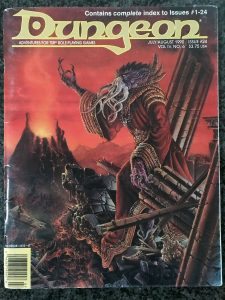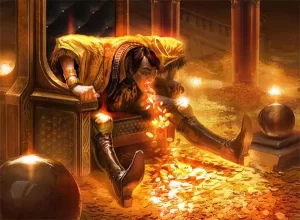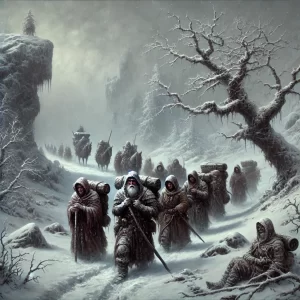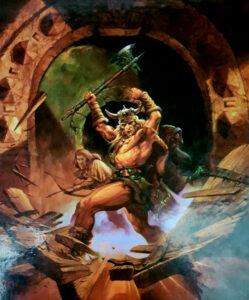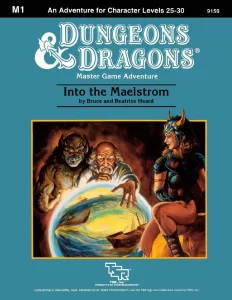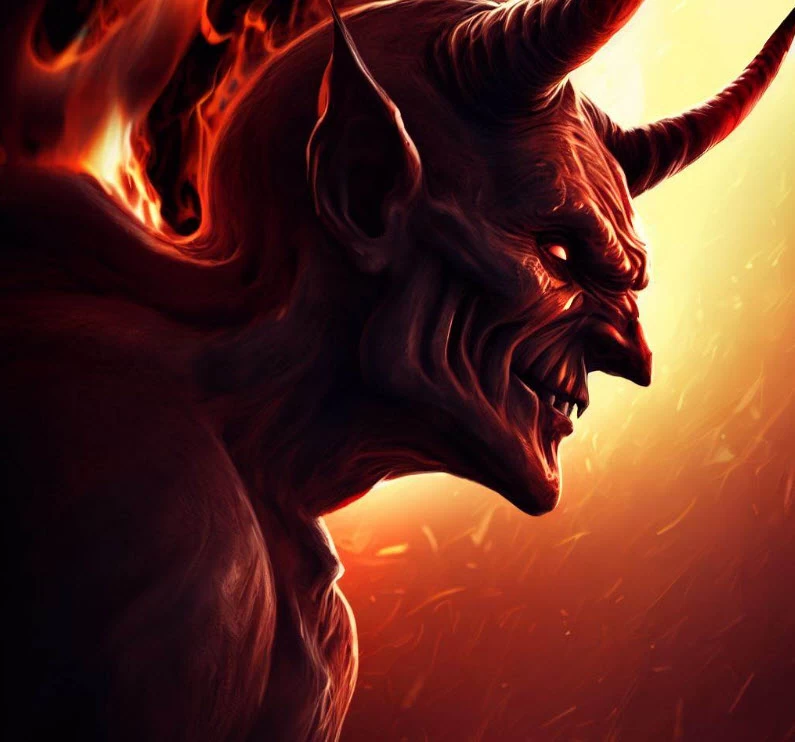
Several decades ago, the intricate and diverse universe of Dungeons & Dragons welcomed a formidable character that would soon become infamous in the folklore of the game - Satan, a figure who is deeply rooted in various mythologies, religious texts and writings of the statecraft of hell. As time progressed, the complexity and depth of his character were further expanded to introduce two other significant entities, namely Belial and Astaroth. Each of these entities brings to the table a rich background, steeped in lore and intricate narratives that provide an expansive canvas for gamers to explore.
After an extensive period of research and delving deep into the voluminous texts and resources available, I am poised to present a comprehensive exploration and presentation of these entities - Satan, Belial, and Astaroth, each possessing a distinct personality, a set of powers, and unique backstories that intertwine with the multifaceted universe of D&D.
Satan
Supreme in the hierarchy of fiends, Satan embodies a figure of universal dread. He possesses the fluid ability to take on any appearance he desires, though he often favors the semblance of a regular human, adopting traits designed to foster both trust and reverence from those he engages with. Within domains where his rule is absolute - occurrences that are scarce yet progressively growing in frequency - he materializes in an almost humanoid shape, standing approximately 7 feet tall, equipped with horns, a tail, and a pitchfork, and featuring deep, maroon-hued skin that radiates a majestic aura.
His agility transcends limits, enabling him to traverse at unparalleled speeds, teleport with pinpoint accuracy, journey across different dimensions, or even traverse through the corridors of time as needed. To successfully land an attack on Satan, an assailant would require a weapon with a +3 enhancement and must harbor a conscience unburdened by guilt and a resolve unwaveringly fixed on a goal of the purest intentions. Any brave or foolish enough to assault Satan through psychic means will invariably succumb to his eternal dominion - only a Wish spell bears the potency to rescue such individuals, with lesser measures proving futile.
Satan stands impervious to conventional psionic assaults, abstaining from utilizing standard psychic modes of attack. His mastery over magical and psychic disciplines is virtually limitless, allowing him the freedom to employ any spell or psychic technique at will. His prowess in spellcasting rivals that of a 30th-level adept, save for druidic spells where his capabilities align with a 14th-level expert. His psionic strength is unregistered, but assumed great, although he expends no energy when utilizing his formidable psychic abilities.
Satan possesses the formidable power to manipulate destiny, orchestrating a series of calamities to befall a person, including the demise of loved ones and the dismantlement of their professional life, assets, societal standing, reputation, and physical well-being, just to initiate the spiral of misfortune. However, there exists a glimmer of hope for the afflicted individual; should they exhibit unwavering resolve amidst these tribulations, the agents a character's deity benevolence might ultimately step in to alleviate their distress, striving to preserve the equilibrium of the multiverse. This intervention, unfortunately, might not bestow any form of restitution for the hardships endured.
Allure and Seduction
Satan's paramount skill lies in his mastery of seduction and allure, wielding the power to fulfill the deepest desires harbored by any individual. To activate this potent promise, the aspirant must seal a diminutive yet binding contract, substituting conventional ink for a personal offering of their own blood. This pact facilitates the realization of wishes that transcend the capabilities of ordinary solicitations, crafting outcomes that are both immensely influential and transformative.
Contractual
Though capable, Satan rarely bestows the granting of common wishes - akin to those invoked through a Wish spell - without the formality of the blood contract. Such exceptions are usually reserved to extend a helping hand to souls already ensnared in a dire fate or possibly as a token of appreciation for unwavering allegiance to him. When it concerns matters of significant magnitude, Satan typically mandates the formation of a contractual agreement, reinforcing the gravity and binding nature of the transaction between him and the person seeking to have their wish granted.
After a period of seven years, an individual who has traded their soul to Satan in exchange for one of these potent wishes is obliged to forfeit their soul to the dark entity, regardless of the stipulations encompassed within their wishes. According to the terms of this agreement, after a span of seven years, the individual is bound to surrender their soul to Satan, no matter what conditions or specifications were contained within the wish they were granted. This suggests a binding contract where, in the end, Satan claims the individual's soul, irrespective of any clauses or details outlined in the initial wish.
Exception might be in instances where the person has sought the gift of immortality, the due date for the soul's surrender is extended to a time when the person, weary of their ceaseless existence, chooses to relinquish their hold on life and willingly embarks on a journey to hell - a choice that the majority eventually succumb to. Alternatively, the contract reaches its conclusion upon the person's demise through violent means, as immortality does not shield them from potential fatalities arising from accidents or conflicts.
Preference and Grace
Despite this, Satan occasionally displays a preference for individuals willingly submitting to their infernal fate, at times granting protective measures to prolong their earthly sojourn. This assistance may manifest in various forms, including magical armor or additional wishes, thereby guarding them against untimely deaths and encouraging a voluntary descent into the fiery abyss when the time feels ripe for the individual. This strategy aligns with Satan's penchant for acquiring souls who succumb to the darkness voluntarily, rather than through coercion or unforeseen accidents.
For individuals who seem to tolerate the gift of immortality with grace, Satan has a penchant for introducing a series of unforeseen and often unpleasant surprises, not stipulated within the contract, to nudge them toward voluntarily embracing their damnation by sapping the joy from their endless lives, rendering existence practically unbearable. In cases where immortality hasn't been the chosen wish, the person may procure additional desires, though each subsequent wish exacts a toll of one year from the person's remaining lifespan.
Clarity
To maintain clarity and precision during gameplay, it is highly recommended that the contract be documented clearly, with identical replicas provided to both the player character and the Dungeon Master. This permits a comprehensive review by the involved player before they commit to the agreement, a crucial step given Satan's notorious propensity for meticulously adhering to the literal terms of the contract, often manipulating its wording to satisfy his malevolent inclinations. Consulting a legal expert on these agreements is typically not an option, and those willing to provide counsel demand a staggering fee. Generally, the contract delineates the explicit terms of the exchange, specifying the respective obligations and entitlements of each party.
Null and Void
Once a pact is forged with Satan, extricating oneself from the binding agreement is an exceedingly rare occurrence. A slight window of opportunity for nullification exists if the individual was not in full possession of their faculties during the signing, thereby rendering the contract null and void and the granted wish rescinded. Satan does not take such violations lightly and will exact vengeance upon the orchestrator of the interference.
Notwithstanding, as long as the individual remains content or at least resigned to the terms of their contract, there exists no force potent enough within the cosmos - not even divine intervention (although theoretically feasible, it has never been recorded to transpired) - capable of annulling the agreement. However, should the doomed individual harbor a fervent desire to escape the contract's clutches, avenues do exist. While they cannot negate the innate obligation to forfeit their soul, they have the option to seek the aid of an entity possessing monumental power willing to confront Satan in a celestial duel, championing their cause in an epic battle against the dark lord.
To Annul
Regrettably, once the individual harbors genuine intentions to annul the contract, the countdown to their demise accelerates dramatically, converting their remaining years to a mere equivalent in hours before Satan arrives to claim his due. This instigates a frenzied race against time, necessitating swift and decisive action post-reconsideration.
Moreover, other demons are aligned with Satan in this regard, diligently working to hinder the individual's attempts to escape their destined fate, either through detainment or, if necessary, termination. This unified front stems from the understanding that the credibility of the entire demonic realm is jeopardized if the contract is breached. Naturally, embarking on any measure to nullify the contract can only commence once the firm decision to do so has been established.
In these dire circumstances, salvation is still within reach, albeit challenging to secure. Clerics possessing a minimum rank of Patriarch possess the authority to invoke their deity's intercession, potentially rescuing the endangered soul. However, this divine intervention usually demands evidence of the person's commitment to virtuous principles, often manifested through the undertaking of a significant quest, serving as a testament to their newfound allegiance to the forces of good. This venture effectively becomes the currency for their soul's redemption.
As part of the spiritual salvage process, the essential casting of an Atonement spell is mandated, accompanied often by the initiation of a Quest - necessitating the expertise of an eighth-level cleric. Failing to fulfill the obligations of the assigned Quest carries a grave consequence: the instantaneous reclamation of the individual's soul by Satan, reinstating the original terms of the infernal contract and sealing their grim fate.
Satan Allies
Satan finds camaraderie among particular groups and entities; this includes the sects of witches who devoutly venerate him, the majority of individuals who have forsaken their souls in pacts with him, and the formidable Belial. On occasion, Satan might solicit the assistance of a human ensnared within his sphere of influence to carry out a specific duty on his behalf. While this request can technically be declined, it is widely acknowledged that defying Satan's wishes harbors significant repercussions. Nevertheless, those who successfully fulfill Satan's assignments can anticipate suitable compensation for their efforts.
Contrarily, his roster of adversaries is extensive, encompassing virtually all entities that align with the forces that oppose him. This includes the myriad devils who recognize Asmodeus as the supreme ruler of the infernal realms - essentially every devil with the exception of Belial. Furthermore, the entire demonic cohort, celestial beings, and the assembly of deities and entities representing the spheres of good, chaos, and neutrality are firmly against him.
This extends to the powers embodying lawful evil, neutral lawful, and neutral evil principles that forge alliances with Asmodeus or any other entity that opposes Satan, making him a figure contested by a vast array of powerful forces. Indeed, navigating these complex and perilous alliances and enmities might make any character's dilemmas seem trivial in comparison!
Satan's Stat Block
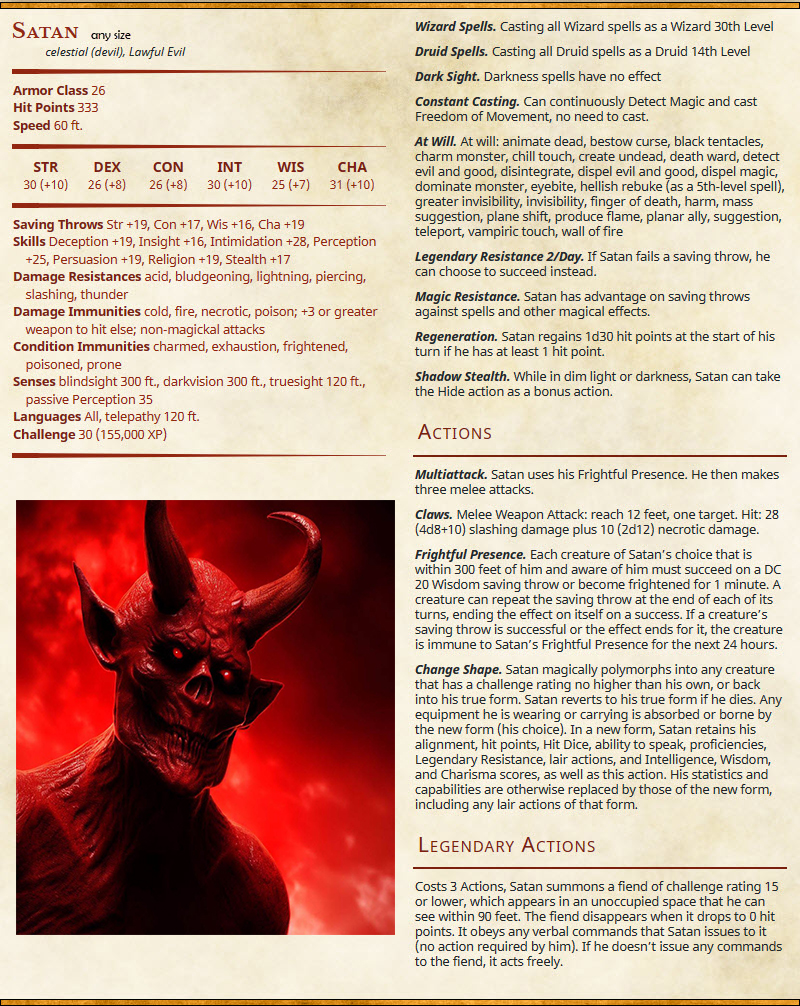
Download Satan for Dungeons & Dragons PDF

Belial
Belial is pronouncd BEE-lee-ul; the name means "Wicked" or "Worthlessness": Who at one time, was the devil in charge of politicians, the supreme commander of the armies of hell and the personal lieutenant of Satan.
Now, Belial finds himself relentlessly pursued in a ceaseless journey throughout the multiverse. Chronicled in the Lesser Key of Solomon, a notable medieval grimoire delineating the majority of archdevils, Belial is portrayed as a celestial figure of angelic beauty, steering a chariot of fire with a voice that resonates with harmonic pleasure. His renowned Chariot of Fire surpasses the capabilities of a Chariot of Sustarre threefold in both resilience and capacity, maintaining parity in other attributes. In the unfortunate event of its destruction, Belial possesses the remarkable ability to conjure a replacement by the following dawn.


Exuding a magnetic allure, he can beguile, charm others with a significant advantage, decreasing a defender's saving throw by -2. Those ambitious enough to summon him must present a sacrifice of considerable value, a strategy devised to prevent invocation by numerous potential adversaries lurking in the shadows.
With each turn or melee round, Belial can exert an extraordinary array of powers at his discretion, including but not limited to conjuring pyrotechnics, manifesting flame, erecting walls of fire, and wielding the powers of light. His expansive skill set encompasses language comprehension, magical script interpretation, invisibility detection, and object location, allowing him to cast beguiling spells, facilitate restoration, resurrect the dead, and even grant another's wish. Furthermore, he can effortlessly summon a familiar according to the summoner's preference daily, alongside employing potent symbols invoking fear and stun effects.
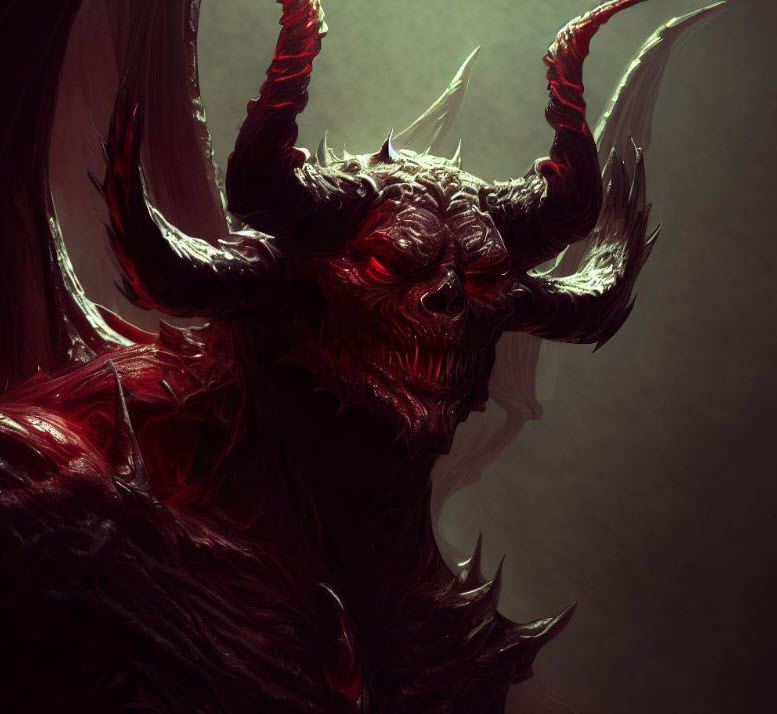
In the realm of political maneuvering, Belial's expertise nearly mirrors that of Asmodeus. Nevertheless, associations with Belial are met with fierce retribution from Asmodeus, who holds an unwavering vendetta against anyone fraternizing with him. Despite his fall from grace, Belial retains a semblance of respect from the infernal legions. These forces remain reluctant to inflict harm upon him, offering clandestine aid, when possible, to avoid the wrath of other archdevils. Notably, in the simultaneous presence of Asmodeus and Belial, a frantic endeavor to apprehend Belial unfolds, driven by a desire to escape the fury of the hell's lord.
Belial's alliances are primarily restricted to Satan and his preceding lord's adherents. Conversely, his adversaries align with those opposing Satan, with a notable exception being the hell's armies. Moreover, Belial has incurred heightened animosity from other devils, a byproduct of his zealous involvement in Satan's schemes and his apparent enjoyment in tormenting these demonic beings during their reign.
Astaroth
This grand demonic entity serves as hell's chief financier. Once occupying the third tier in the infernal hierarchy, seated behind Beelzebub and Adramelech, he now navigates the depths with a notable level of autonomy, deviating from the reigning authority. Officially, he retains his position, subordinate only to Asmodeus and Baalzebul, though neither would dare exert their dominance over Astaroth barring an extreme crisis. Similarly, he refrains from exerting command over his demonic counterparts, preferring instead to barter favors whenever he desires a task accomplished. Astaroth manifests as a formidable figure, resembling a human, towering at 8 feet, with a somewhat rotund physique adorned in opulent attire, radiating an aura of squalid wealth.
His presence is marred by a nauseating, fiery odor capable of inflicting 1d12 points of fire damage to all beings within a 30-foot radius. However, protective measures such as a ring of fire resistance or its equivalent could shield one against this peril. Yet, proximity within 10 feet necessitates a saving throw against poison to avoid succumbing to unconsciousness from the potent stench for a period spanning 1d12 turns, unless neutralized within one turn-a fate to be evaded at all costs when faced with an arch-devil.

Astaroth commands a magnificent, ancient red dragon as his steed and bears a formidable pit viper coiled around his right arm. He possesses the ability to unleash a powerful blow with his left hand, inflicting 1d12+8 points of damage, a trait shared among his devilish kin. In battle, Astaroth can exercise a vast array of powers each turn or melee round, ranging from manipulating fire and ice to commanding magical and coercive abilities, as well as the capacity to grant another's wish.
His daily rituals include tapping into the powers of legend lore, connecting with lower planes, and accessing nearly flawless precognitive abilities. His penetrating gaze can unleash chaos and confusion upon his foes.
A master of wealth creation, Astaroth can materialize treasure in various forms at will, leaving the extent of his accumulated riches and its transportability to the Dungeon Master's discretion. An adept educator in the liberal arts, he provides accelerated learning in these domains. Despite his immunity to psionic attacks, Astaroth lacks the capability to initiate them. Open to discourse on the downfall of his kind, Astaroth meticulously omits his personal involvement, maintaining an illusion of untainted servitude towards divine will and humanity's welfare. However, his tremendous power and influence demand respect and caution from fellow devils, necessitating skepticism towards his proclaimed innocence.
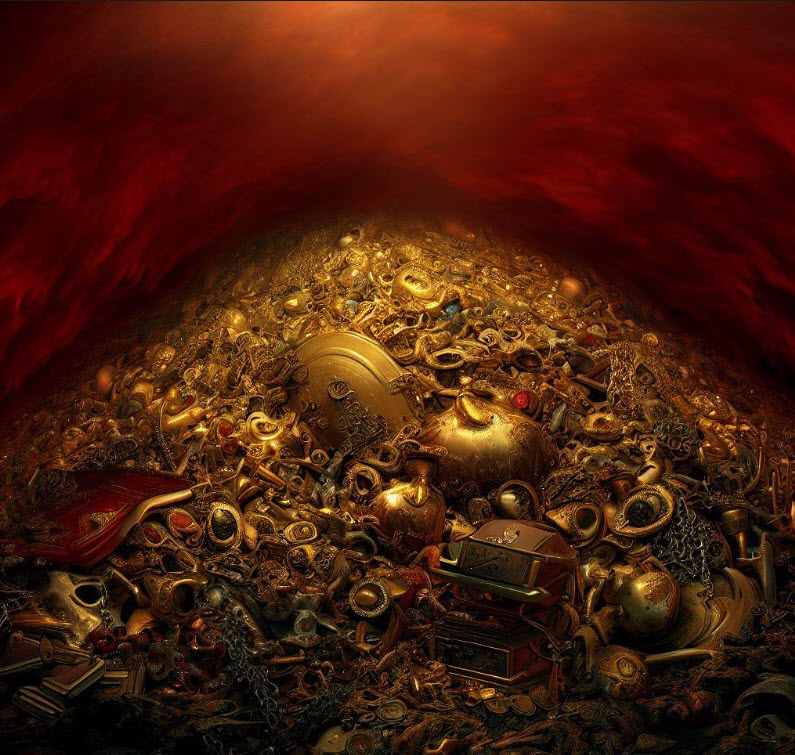
Consider reading about The Birth of Hell and the Abyss.
